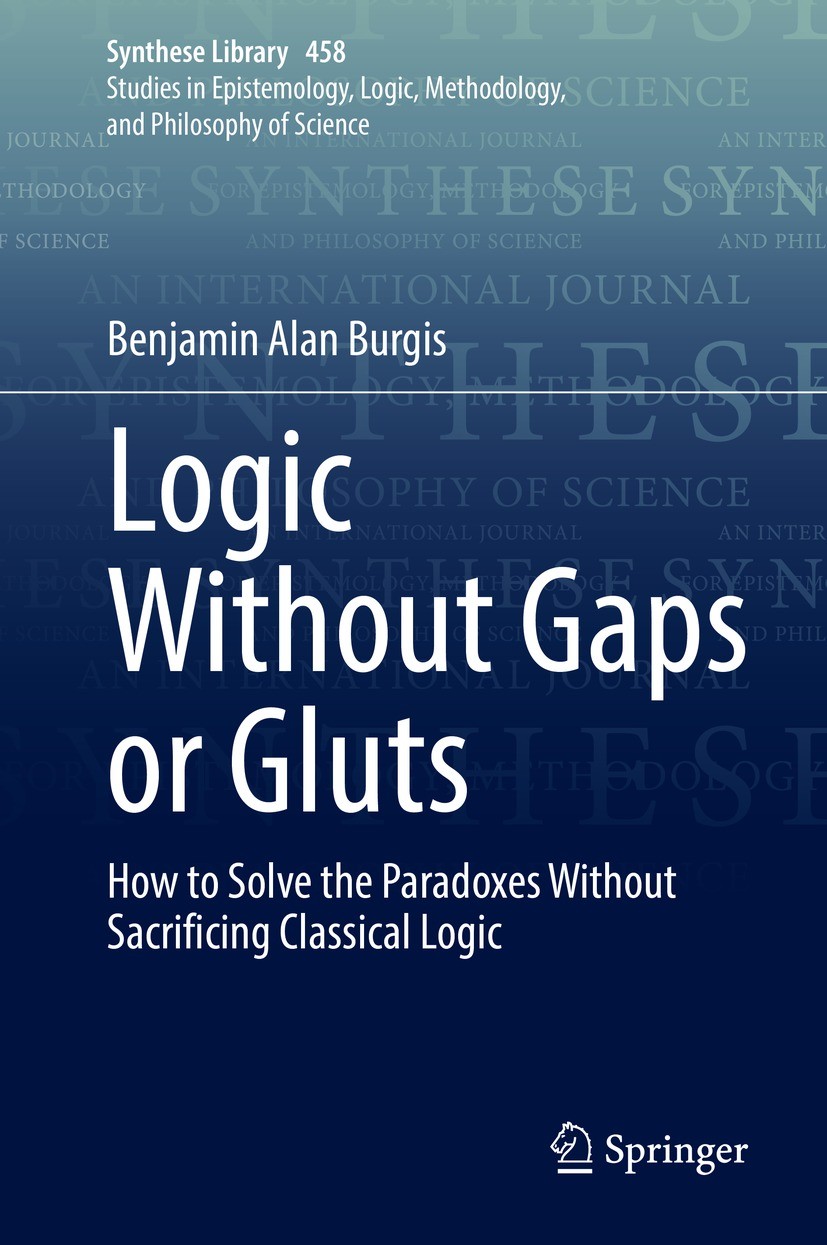| 书目名称 | Logic Without Gaps or Gluts |
| 副标题 | How to Solve the Par |
| 编辑 | Benjamin Alan Burgis |
| 视频video | http://file.papertrans.cn/588/587945/587945.mp4 |
| 概述 | Argues that the paradoxes give no reason to reject classical logic.The first full-length book to deal with this topic indepthly.Touches on the work of Graham Priest, Hartry Field and JC Beal. |
| 丛书名称 | Synthese Library |
| 图书封面 |  |
| 描述 | .This book offers a defense against non-classical approaches to the paradoxes. The author argues that, despite appearances, the paradoxes give no reason at all to reject classical logic. In fact, he believes classical solutions fare better than non-classical ones with respect to key tests like Curry’s Paradox, a Liar-like paradox that dialetheists are forced to solve in a way totally disjoint from their solution to the Liar. ..Graham Priest’s .In Contradiction .was the first major work that advocated the use of non-classical approaches. Since then, these views have moved into the philosophical mainstream. Much of this movement is fueled by a widespread sense that these logically heterodox solutions get to the real nub of the issue. They lack the ad hoc feel of many other solutions to the paradoxes. The author believes that it‘s long past time for a response to these attacks against classical orthodoxy. He presents a non-logically-revisionary solution to the paradoxes...This title offers a literal way of cashing out the disquotation metaphor. While the details of the view are novel, the idea has a pre-history in the relevant literature. The author examines objections in detail. He r |
| 出版日期 | Book 2022 |
| 关键词 | Paraconsistent logic; Dialetheism Excluded Middle; Disquotationalism; Graham Priest; Hartry Field; JC Bea |
| 版次 | 1 |
| doi | https://doi.org/10.1007/978-3-030-94624-1 |
| isbn_softcover | 978-3-030-94626-5 |
| isbn_ebook | 978-3-030-94624-1Series ISSN 0166-6991 Series E-ISSN 2542-8292 |
| issn_series | 0166-6991 |
| copyright | Springer Nature Switzerland AG 2022 |
 |Archiver|手机版|小黑屋|
派博传思国际
( 京公网安备110108008328)
GMT+8, 2026-2-9 23:41
|Archiver|手机版|小黑屋|
派博传思国际
( 京公网安备110108008328)
GMT+8, 2026-2-9 23:41


